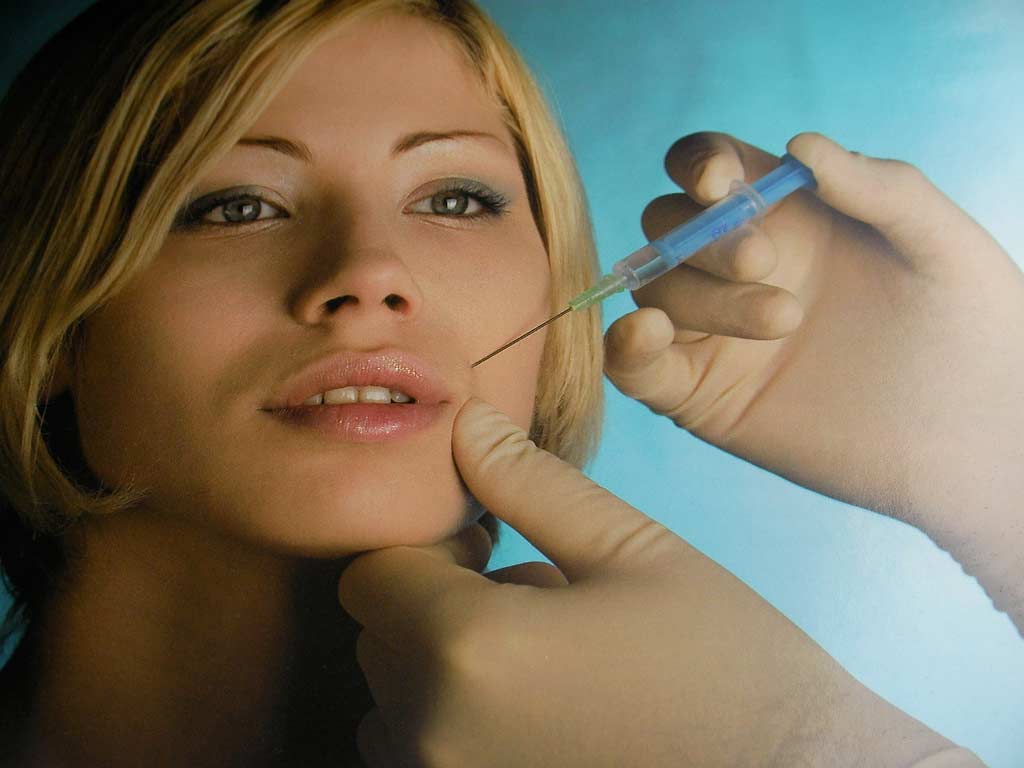Botox is not good only for wiping out that last remaining hint of emotional expression from your face; it can also shrink the oil glands in your skin.
A quick post about an interesting study I found today. For some time now researchers have speculated that a neurotransmitter acetylcholine affects sebum production. Korean researchers wanted to test this. They incubated human sebocytes (sebum producing cells) in acetylcholine and showed that it increased the activity of the cells in a petri dish, suggesting it can increase sebum production in humans.
They also conducted a human trial using Botox, which can inhibit the acetylcholine pathway. Here are the details of the study:
- 20 participants (6 men and 14 women)
- 10 of the participants had oily skin and 10 dry or normal skin
- Split-face study, one side was injected with Botox and other side with an inactive placebo (saline)
- Double-blinded, so neither the researchers nor the participants knew which side got Botox and which got the placebo
- The participants received 4 injections at different parts of cheeks
- The participants were only treated once (i.e. 4 injections per cheek during a single visit
Here’s a graph that shows the results.
Source: Zheng Jun Li, et al. Regulation of lipid production by acetylcholine signalling in human sebaceous glands. Journal of Dermatological Science. https://www.sciencedirect.com/science/article/pii/S0923181113002193
Here are the interesting points:
- Botox reduced sebum production by about 30% (from 210 to 140) in 4 weeks in people with oily skin, with the placebo side showing no changes. Botox seemed to normalize some of the abnormalities in oily skin and after 4 weeks their sebum output was almost comparable to people with normal skin, though still somewhat higher.
- People with dry or normal skin also showed some changes, but these didn’t reach statistical significance.
- Botox also reduced pore size by 18% in people with oily skin, again with no changes in the placebo side or in people with normal or dry skin.
What’s interesting about this is that the neurotransmitter acetylcholine is also involved in sweat production. This could explain why my skin always feels much oilier in hot and humid conditions (welcome to Thailand), but when I go somewhere cold and dry (like my home country, Finland) I don’t get that oily feeling and my skin generally does much better.
Apparently Botox can help with excess sweat production too. 12 – 14 injections per armpit paralyzes the nerves that secrete acetylcholine causing almost immediate reduction in sweat production that lasts for 6 to 10 months. It looks like something similar happens with regard to sebum production. It’s too bad they only followed the participants for 4 weeks.
I don’t know about the long-term side-effects of Botox, so I’m not sure I would recommend it for controlling sebum production. But there you have it anyway, an option for those inclined to try it.
Here are some less invasive ways to reduce sebum production:
- Topical Green Tea: One Of Nature’s Most Potent Acne Treatments
- Help I Have Oily Skin! What Can I Do About It?
- More natural ways to reduce sebum production
Photo Credit: ekai



